Fiddles, theremins and remote orchestras: Natalie Holt on her score for Marvel’s Loki
The UK-based composer and violinist discusses the weird and wonderful sounds of Loki, her career composing for the screen, and the perils of managing an orchestra over Zoom.
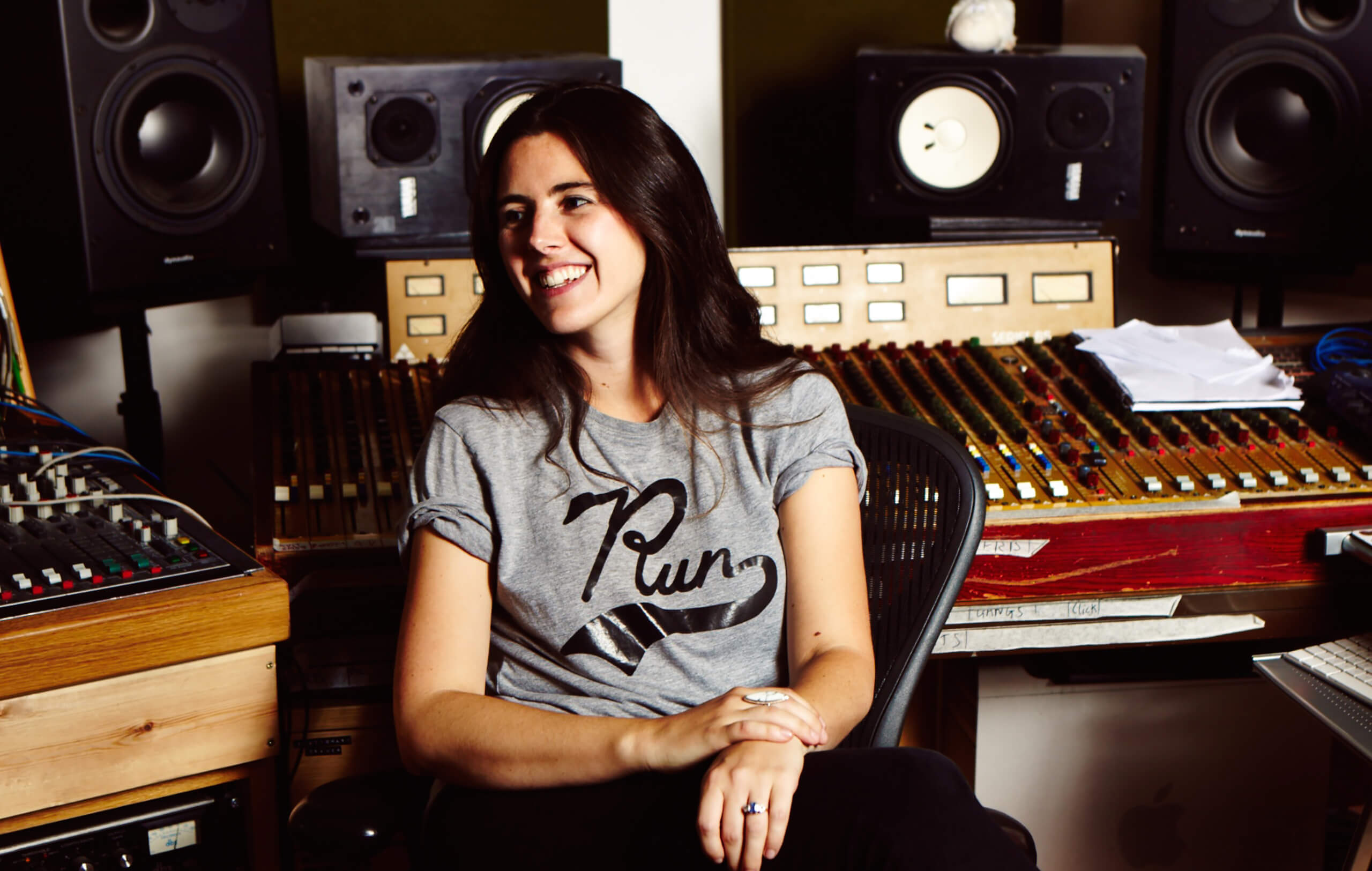
“I enjoyed the feeling of not having to be a slave to what Marvel had done before,” says Natalie Holt. The UK-based composer is telling us how she had to chart a new course for Loki, away from the Wagnerian pomp and full orchestras that have defined the sound of the Marvel Cinematic Universe (MCU) over dozens of films and TV shows. “We wanted to really push it and do things that were unexpected.”
- READ MORE: Hacking the music industry
Loki, the latest MCU spin-off that landed on TV screens last month, follows the titular antihero as he skips across timelines, leaving chaos in his wake. Not your average superhero-saves-the-universe tale. And to match that, Holt had to venture into new sonic territory, where warbling theremins, thick synth textures, Scandinavian folk instruments and the ghostly Ondes Martenot play recurring characters.
The left-field soundtrack has now earned plaudits from fans and critics – with one reviewer even calling it among the “best things about the show”. So how did Holt manage to convince a cinematic behemoth like Disney that a primitive Soviet electronic instrument would be right for the job?
Rewind a decade or so, and the prospect of working with Disney would have seemed as fantastical to Holt as one of Loki’s time-twisting plotlines. As a young composer, she initially struggled to break into the highly competitive world of screen composing after completing her master’s degree at London’s National Film and Television School in 2007.
“I left and was earning peanuts for many years,” she remembers. “Playing the violin to make a living because I just could not get a gig. It’s so frustrating to be in your 20s and know that you have it in you, but you’ve got no way to actually get to the work.”
A breakthrough eventually came co-writing the music for the 2011 BBC adaptation of Great Expectations with fellow composer Martin Phipps. It earned the pair a nomination for Best Score at the BAFTAs and was the start of a successful creative partnership. They would go on to earn several more nominations and awards, including the Ivor Novello Award for Best Television Soundtrack for 2014 spy drama The Honourable Woman, and a nomination at the Primetime Emmy Awards for Outstanding Music Composition In A Series for 2016 drama, Victoria.
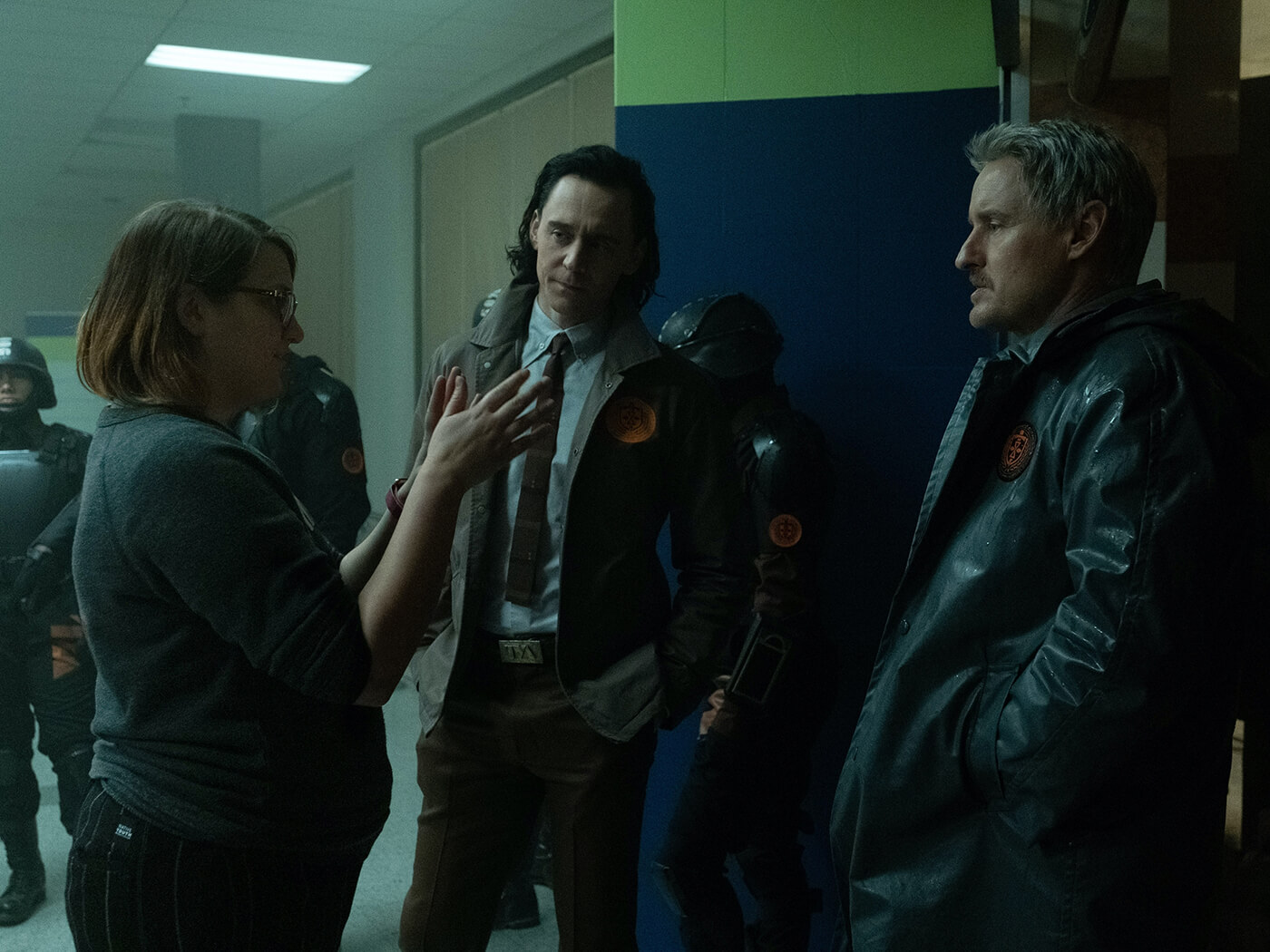
By the time Holt produced her emotionally raw and heartful score for the 2017 BBC drama, Three Girls, which won her a Royal Television Society award for Best Original Music, she was firmly on the path that would lead her to pitch her musical ideas for Loki to series director Kate Herron.
“I’d read the script and had a pitch meeting with Kate”, says Holt. “A lot of the things I responded to – and the influences I had when I read the script – connected up with Kate’s vision, which was really lucky.”
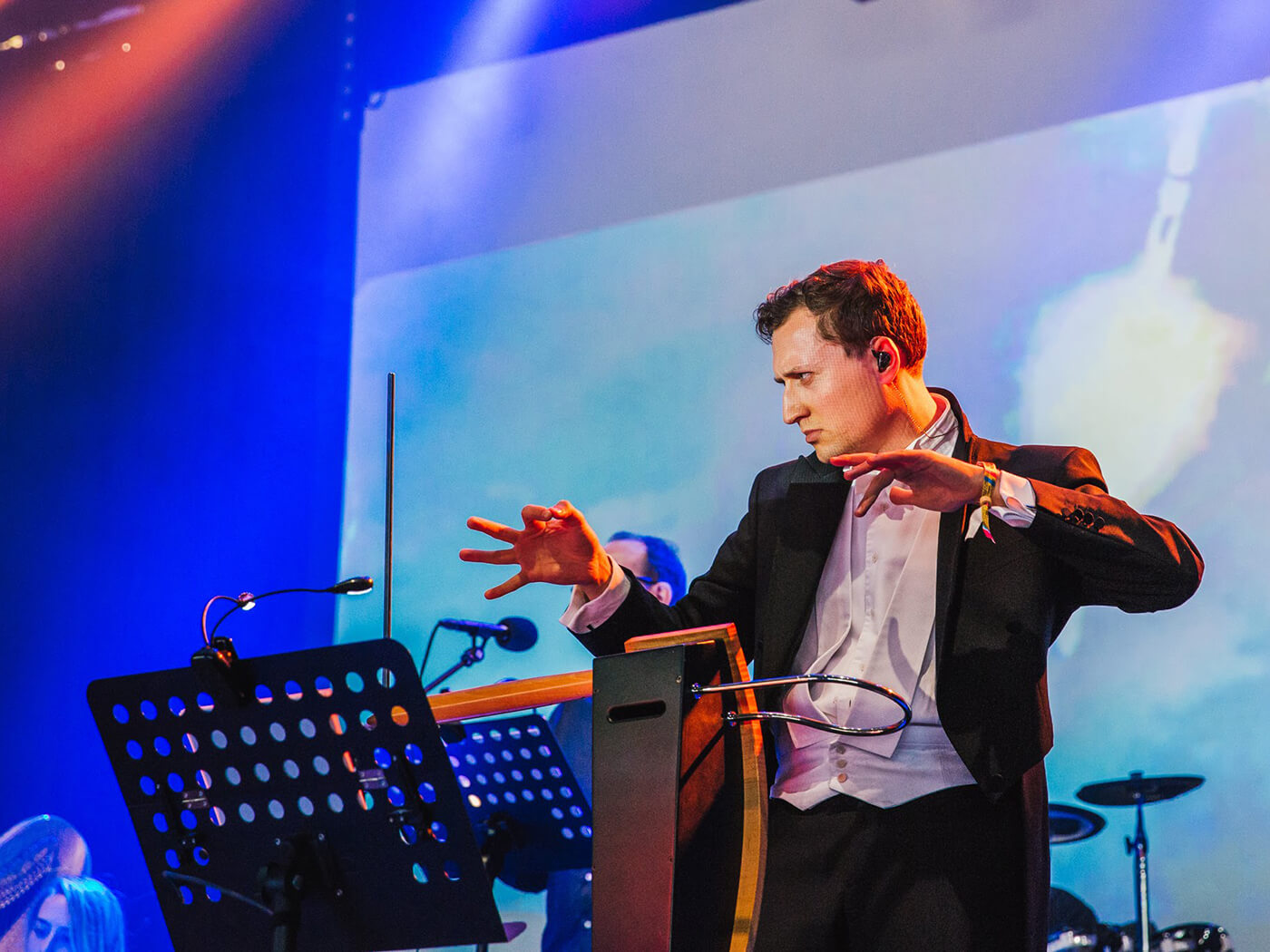
Holt was officially brought on board as the series’ composer, becoming the second woman to helm the musical soundtrack for an MCU title after Pinar Toprak, who scored Captain Marvel in 2019.
Holt’s first task after joining the production was scoring a suite of themes to be sent off for review and approval by, among others, MCU mastermind Kevin Feige. She explains, “The way Marvel handles their process means that they’re all on board with the style and the sound before you dig in to scoring scenes or start working through an episode.”
“Loki is so grand, it’s on an epic scale. It feels like a big space to be able to write in”
Out of Marvel’s expansive roster of supervillains, few come bundled with the complexity of Loki. The first major antagonist of the MCU, and a central player in numerous subsequent films, the God of Mischief regularly flips between good, bad, humour, sadness, trickery, villainy and more.
So, how to create a musical motif for one of pop culture’s most recognisable bad boys? According to Holt, it all happened rather quickly.
“I had to do a pitch for one of the scenes in the time theatre, where Loki’s with Mobius in episode one,” recalls Holt. The scene in question sees Time Variance Authority (TVA) agent Mobius, played by Owen Wilson, revisit a litany of Loki’s past, present, and future crimes and misdeeds. “I think they had quite a few composers pitch on that scene. I just sat down and came up with Loki’s theme right there, during the pitch meeting.”
Of all the musical motifs that the character of Loki has accrued through a decade of appearing in the MCU, it’s Holt’s theme that truly captures the playful extravagance and deep theatricality of the supervillain.
“It’s got the drama and the low-end,” says Holt. “Then it has those cheeky string rips over the top. It felt like it had to have lots of layers in it and be really over-the-top.”
Loki takes place in a retro-futuristic world, paradoxically filled with time-travelling plot points, action-adventure fantasy, and office cubicle bureaucracy. It’s a setting that perfectly suited the “over-the-top” aesthetic Holt had in mind and offered the composer a wealth of different influences to draw upon.
“I adore all the Doctor Who soundtracks and all that early electronic music. I’m a big fan and so I was really happy to be able to explore those influences and pair them with classic, powerful, Wagner-esque themes.”
While Holt’s score certainly honours the orchestral stylings which have become synonymous with the MCU, it also takes risks and notably branches out – menacing drones, twisting melody lines, and synthesised percussion take centre stage, with strings and brass largely playing a supporting role.
Of course, as Holt will readily point out, that creative freedom needed to be balanced against the larger goals of the production and vision of its director.
“I enjoyed not having to be a slave to what Marvel had done before”
“You can’t impose your score on the film – it’s got to be serving the picture. You’ve got to be collaborative and write something that fits,” says Holt. “[Herron] had a really strong sense of where scenes were leading, overall story arcs, what was driving each scene and how characters were feeling, which all might be more complex than what you’re seeing on the surface.”
That detailed direction, combined with a visual aesthetic that blends brutalist architecture, retro-futuristic technology, and Brazil-style authoritarian workplace posters, demanded a delicate touch from the composer – something that was helped along by a close working relationship between Holt and Herron.
“The director-composer relationship is so important, and I really hit it off with Kate,” Holt says. “It’s amazing to feel like someone is leading you forward and supporting you. It’s the best relationship you can have with a director.”
Befitting a visually rich tale that spans multiple timelines and realities, Holt’s score brings together a pleasingly eclectic selection of instruments and performers.
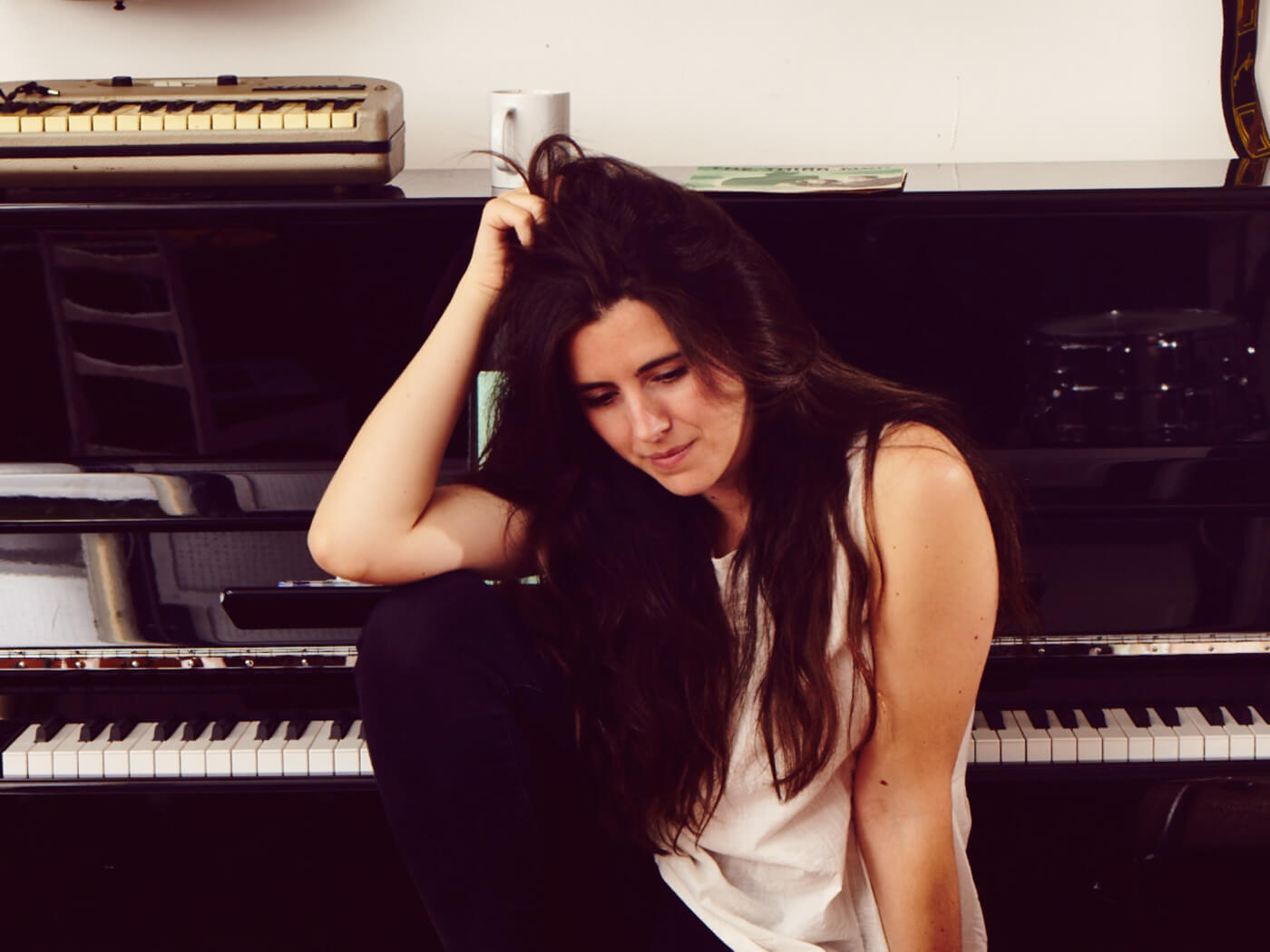
Weighty string sections and grand orchestral textures, provided by the Budapest Film Orchestra, dovetail with classic synth tones produced on a Roland Juno-60 and Moog Mother-32. At the same time, Loki’s mythical, Nordic-inspired origins manifest through Scandinavian folk instruments such as the nyckelharpa and Hardanger fiddle, expertly performed by the Lodestar Trio, a group that Holt had wanted to work with for years.
“The magic that they bring, those folk twists where they bend a note and make it sound so soulful – even when I’d given them just a boring line on the piano. They’re always really busy, and I’m sure they would have been on tour if not for the pandemic, so I was really lucky to get them on this score,” Holt says.
However, if there’s one sound that captures the heart of Loki’s mind-bending plot, it’s the theremin. Scattered throughout the series, and prominently featured on the title theme, the instrument’s eerie glissandos capture a bygone era of classic sci-fi, while simultaneously encapsulating the wily menace and mischievous humour of the titular character.
The idea to make the theremin a cornerstone of Loki’s sound palette came from Herron, who included the music of legendary theremin performer Clara Rockmore in her original pitch for the show. Fortunately, Holt happened to be in contact with Charlie Draper, a virtuoso theremin player whose collection of rare instruments can be heard throughout Holt’s score.
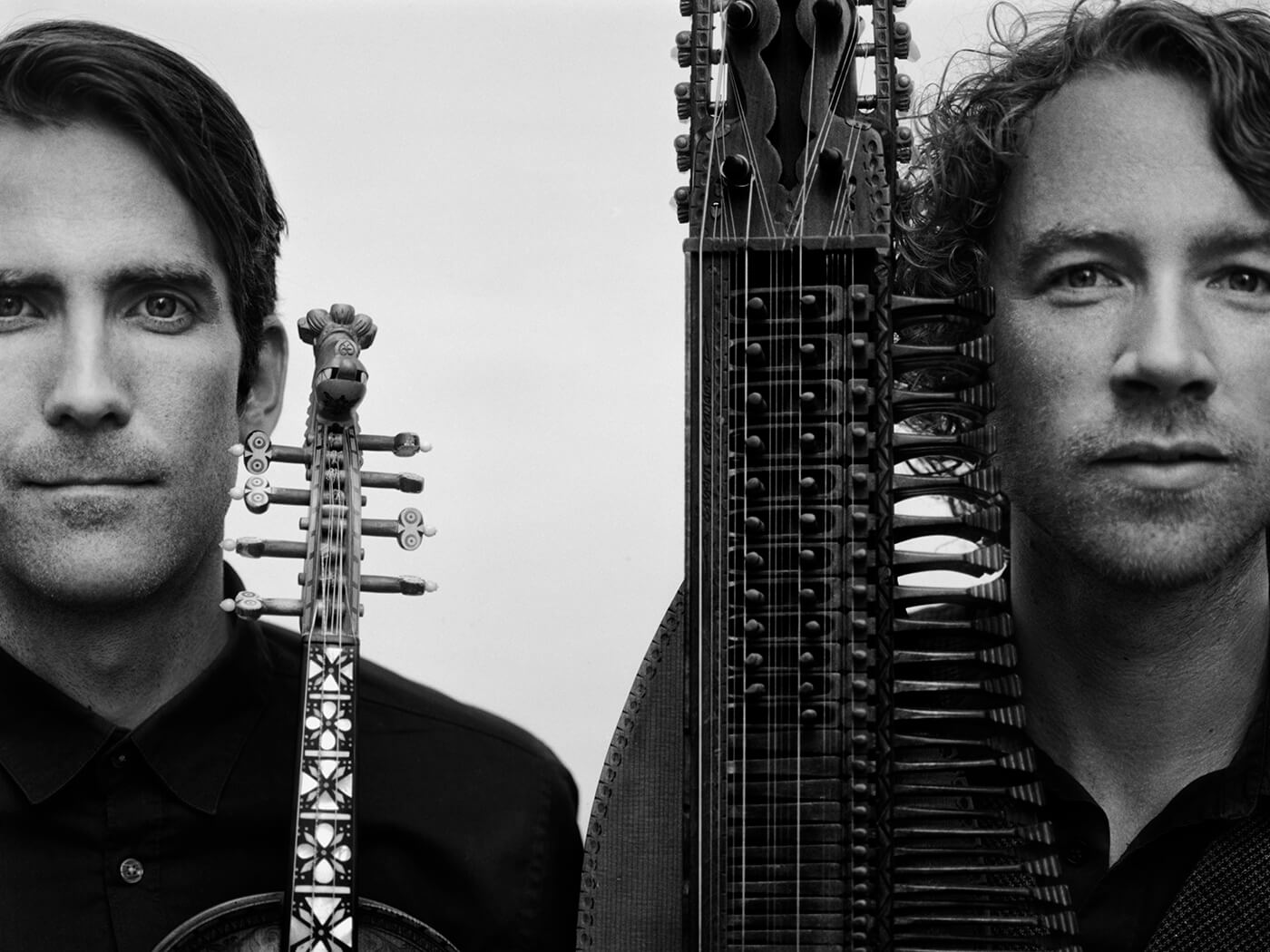
“Kate really loved the theremin,” recalls Holt. “I’d worked with [Draper] on a different project during lockdown, [and] every track that he played on, he was so amazing, so enthusiastic.”
The soundtrack features an original 1929 RCA Theremin (one of only 140 surviving instruments from the original production run of 500) and the newer Big Briar 91A designed by Bob Moog. Holt and Draper also used the haunting tones of the rare Ondomo, a portable version of the historic Ondes Martenot, one of the world’s earliest electronic instruments. Rather than using them purely in their traditional role as soprano instruments, Holt’s soundtrack often pairs them with software synths like Zebra2 to create deep, rich swells and basslines. It’s a combination that perfectly evokes the blend of vintage and futurism we see on screen.
“I’d send [Draper] a digital synth and he’d go over the bassline on a low theremin – the low sound is just awesome,” Holt explains. “Then we might run that through an analogue tape machine, a Revox G36, to make it even more dirty.”
However, despite the liberal use of rare electronic instruments, sequencers and tape machines during the production of Loki’s soundtrack, Holt says it was essential to keep the technology from getting in the way of her writing.
“I feel like the best point when using technology is when you’re not thinking about it,” she says. “When you can just use it as a tool to get what’s in your head into the world and onto the picture. I’m always trying to keep my process quite simple and straightforward. A lot of my writing is done on the piano, sketching things out on manuscript paper, and then taking things into a sequencer afterwards.”
“Because of Covid, we had loads of time to work on Loki. I gave it the attention that you usually expect to give a film”
As with many recent film and TV projects, the production of Loki had to contend with the ongoing pandemic. Holt didn’t even meet any of the Marvel team nor the Budapest Film Orchestra in person – everything was done remotely.
“All the recordings were done remotely in Budapest, which was challenging,” says Holt. “I’d spend about two days per episode just sat on Zoom with an orchestra or choir or brass section, and if your audio stops working in the middle of a cue or you couldn’t get the picture to work…”
Despite the special hell of trying to manage a recording session from a thousand miles away from the Hungarian capital, the pandemic slowed down the production schedule and gifted the composer that most precious commodity: time.
“TV schedules generally demand a quicker turnaround than films,” says Holt. “Because of Covid, we had loads of time to work on Loki and it didn’t feel rushed. I gave Loki the attention that you usually expect to give to a film.”
With approximately 40 minutes of detailed music scored for each 50-minute episode, that extra breathing room was a blessing. “I felt like it was hard to hold it all in my head because there was just a lot of music,” she laughs. “Making sure I’d sent the right parts off to the right people, getting it back, putting it in the session and going, ‘Oh shit, I forgot to record the theremin!’”
So what’s next on the horizon for the composer? Holt isn’t at liberty to say, but judging by the success of Loki, coupled with an already confirmed second season, we may soon get to hear more of the composer’s vision for the MCU’s favourite anti-hero.
There’s certainly no shortage of musical ideas for the character. As she puts it: “Loki is so grand, it’s on an epic scale – gods and time – these huge themes. It feels like a big space to be able to write in.”
Loki is streaming now on Disney+. The soundtrack for episodes 1-3 is available to stream.